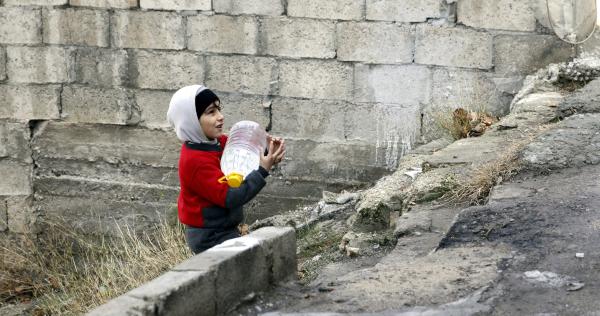At least four million people in Damascus have been without safe drinking water supplies for more than a week after springs outside the Syrian capital were deliberately targeted, the United Nations said on Thursday. A resident and rebels in the area said pro-regime air strikes had damaged a water pumping station.
The U.N.’s Office for the Coordination of Humanitarian Affairs (OCHA) said 15 million people needed help accessing water across Syria after nearly six years of conflict and households were spending up to a quarter of their income on water.
Water supplies from the Wadi Barada and Ain al-Fija springs which serve 70 percent of Damascus and its surroundings had been cut,(OCHA) said.
OCHA said in a statement that supplies had been cut because “infrastructure was deliberately targeted and damaged”, without saying who was responsible.
The Wadi Barada valley is a rebel-held pocket of territory northwest of Damascus that the Syrian army and its allies have been trying to recapture in an offensive that started last week.
A Damascus resident said each neighborhood only gets water for about two hours a day and bottled water prices had increased dramatically on the open market to more than double the cost at state-subsidized grocery stores.
“The U.N. is concerned the water cut could lead to diseases transmitted through dirty water, especially in children, in addition to the extra financial burden for families,” OCHA said.
“(People) are having to purchase water from private vendors, where prices and water quality are unregulated,” it said.
Wadi Barada lies on a road from Damascus to the Lebanese border that is a supply line for the powerful Iranian-backed Hezbollah group, which is heavily involved in fighting alongside Syrian regime head Bashar al-Assad.
Regime forces have been bombing the area heavily for a week, though the Syrian Observatory for Human Rights said there was a lull on Thursday before the air strikes resumed.
The rebels in Wadi Barada have allowed regime water authority engineers to maintain and operate the pumping station and supply Damascus since they took control of the area in 2012.
Fighters have, however, cut water supplies several times in the past to put pressure on the army not to overrun the area.
